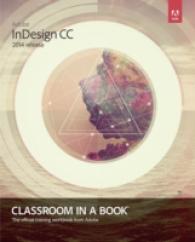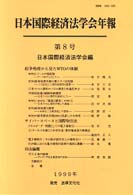- ホーム
- > 洋書
- > 英文書
- > Politics / International Relations
Full Description
What does it take to construct humanity's cultural history and what do these efforts produce in the world? In The Politics of World Heritage, Elif Kalaycioglu analyzes UNESCO's flagship regime, which seeks to curate a cultural history of humanity, attached to "outstanding universal value" and tethered to goals of peace and solidarity. Kalaycioglu's analysis tracks that construction across fifty years of the regime and maps it onto three distinct visions: humanity as a rarified transhistorical subject, humanity as a diverse subject, and humanity as a subject that is adequately represented by the community of nation states. In each of these constructions, experts and states take up the cultural and historical resources that circulate within the regime to narrate a humanity into being, and position themselves as its adjudicators, contributors and custodians. Each construction comes with remainders, that is, parts of humanity excluded from this cultural history, and internal hierarchies between those at its center and others that remain on the margins.
These hierarchies challenge the aspiration to peace and solidarity. While these aspirations have changed across the three iterations of humanity, across the different forms, the regime's structures and participants have been ill-equipped and hesitant to engage with the underbellies of humanity towards robust visions of peace and solidarity. In contrast to this general tendency, Kalaycioglu excavates from select nomination files nested constructions of humanity that hold onto the globality and unevenness of its political conditions and presents the possibility of robust visions of peace and solidarity, and humanity's different futures.
Contents
I.1: Introduction: World Heritage, Politics of Humanity, and Heritage Politics
1: Politics of Humanity: Ideas, Representations, Orders
2: Early World Heritage: Rarefied Humanity, Civilizational Grandeur, and World History
3: Adjudicating a Diverse Humanity: Problems of Universal Value and Visions of Solidarity
4: Humanity is What States Make of It?: Interpretive Contestations and Multipolar Futures
C.1: Conclusion: Should We Call the Toy Broken?
Annex I: Interviews and Meeting Observations
Annex II: Archival Collections
Bibliography
Index








